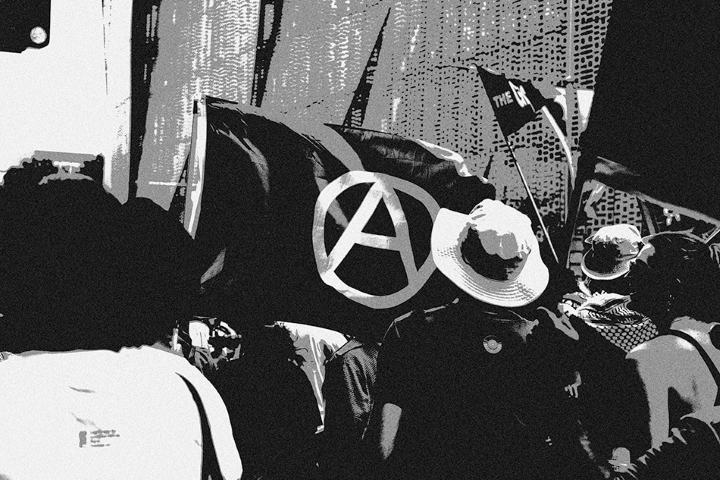May Day 2024 Mutiny Special Edition – Editorial
It doesn’t take a genius to figure out that things are fucked for working class people.
The out of control housing crisis has depreciated our wages on a massive level. Combined with increases in the cost of food and fuel, our wages have been plummeting. As per the Financial Review, household incomes in Australia have seen “the sharpest fall recorded across measured OECD economies”.
Accompanied with this is the push from economists, politicians and business leaders to have this crisis recognised as a crisis of productivity. This means they’re concerned with their own sluggish rates of profit, and aim to fix it by getting more from us for less. This means attacking our wages and conditions – as has already been done.
Attacks on women and on queers continue. While thousands march in the streets for womens’ rights and queer liberation, the religious right has been actively defending their legal powers to discriminate against their workers and against children in their care. Religious bigots have mobilised to intimidate the left, culminating in the mob bashing of queer activists in Belfield last year. The Albanese government’s “middle of the road” approach means working with the Coalition to secure the power of religious institutions, while also posturing to grant some minor reform to queers.
In Palestine, continuous military assaults have killed tens of thousands. With the support of the major western powers Israel has committed unspeakable atrocities. The IDF has killed approximately 35,000 Gazans in the past 6 months, including nearly 15,000 children. Entire neighbourhoods have been levelled, with schools, hospitals and other essential services destroyed. Meanwhile, our government continues to build itself up as a regional strongman, precipitating a future conflict with China. Our borders have never been more militarised and attacks on refugees are now standard operating procedure. Australia is now more prepared for a regional war than ever, with “security” pacts concluded with countries like Tuvalu, and our border guard ready to intercept any refugees fleeing conflict.
There’s no doubt we’re up against a lot, but there’s a tried and tested method to deal with this: direct action.
Multiple times in multiple cities across Australia, workers have taken action to impede logistics and armaments countries doing business with Israel. They have done so as part of a global working-class movement against Israeli militarism, which has brought together workers from India to Italy, from the UK to the US.
The repression directed against us has, at times, been severe. The number of those arrested at port blockades has entered the dozens, with a number charged under New South Wales’ draconian anti-protest laws. However, there’s only one way to defeat repression – not to give up, but to mobilise the kind of worker power that can match the power of the law. This is a process well underway.
The period preceding the most recent state elections was accompanied by an upsurge in industrial action. Teachers, nurses, transport workers and others all took action for higher wages and better conditions. In addition, the tertiary education sector saw a number of strikes, including a long, hard-fought campaign at the University of Sydney. These campaigns secured real gains while ending in dissatisfying ways, proving that we not only have to fight the bosses to win, but that we also need to be organised and willing to defy the union officials and politicians that claim to lead us.
Fighting the class war doesn’t just get us higher pay. It changes us, too. Decades of attacks from above have destroyed working class social institutions, but in every organising campaign we solidify and expand the bonds that hold us together as a class. Instead of competing against each other as individuals, we cooperate together and learn to use that collective force to change society. It’s also through fighting this class war that we can effectively fight against the anti-worker sentiments within our own class. No more attacking migrants on the grounds that workers with citizenship might benefit, or excluding women from workplaces on the grounds that men might benefit.
Change won’t come in a day. The nature of class conflict means that it’ll be a small minority of workers who will act first and take the brunt of repression, before the struggle can generalise and become a tidal wave. Only by continuing to deepen the ties of solidarity across our various workplaces, campuses and campaigns can we rebuild a fighting union movement. United, we are strong enough to truly break the broken laws that keep us down, and to win a free and just world for all.
